Human Foods Geckos Can And Can’t Eat [Massive List Ahead]
Have you ever had your gecko stare straight into your eyes while you’re peacefully eating your dinner? If you have, you might have wondered whether he’d like to have a taste of your food as well. But is it actually okay, not to mention safe, to give your gecko human food?
Human foods can be occasionally eaten by leopard (insectivores) and crested geckos (frugivorous omnivores) but only after adequate preparation. Many, but not all, fruits, and vegetables are safe for crested gecko consumption. Moreover, all geckos should avoid raw meat and never be fed raw eggs or nuts.
Check out the section below to discover what exactly foods you have hanging around that can be provided to your little friend!
Human Foods You Can and Can’t Share With Your Gecko
It might be tempting to give your gecko a good bite of your meaty and juicy burger or a good lick of your ice cream sundae when they seem so fixated on your food, but I would definitely advise against it. Considering that geckos have only been commonly kept as pets in recent years, much is yet to be known for certain about giving them the food we normally eat.
2 Major Gecko Diets: Insectivores Vs. Frugivores
Lizards, in general, have incredibly diverse diets [1]. They could be carnivorous, herbivorous, or omnivorous. More specifically, they could be carnivores feeding primarily on live and dead insects, herbivores living mostly off fruits, or omnivores thriving on the insects and fruits available in their habitats [2].
Geckos in the wilderness are typically either strictly insectivores or predominantly frugivorous omnivores. In a previous article, I’ve already briefly touched the subject as the two most popular gecko species for new keepers have different diets; leopard geckos are insectivores while crested geckos are frugivorous omnivores.
Regardless of the species of your geckos, however, it’s important to give them balanced meals to ensure their overall health and prolong their lives. For them to have healthy diets in captivity, there are a handful of things hobbyists should always keep in mind. Insectivores need a diet of at least 30-50% protein, 20% fat, and 10% fiber. Frugivorous omnivores, on the other hand, need a diet of about 20-25% protein, 3-6% fat, and 20-35% fiber.
Other important nutrients [3] for reptiles include but are not limited to, calcium, phosphorus, iron, folacin, iodine, magnesium, and vitamins A B12, D3, and E.
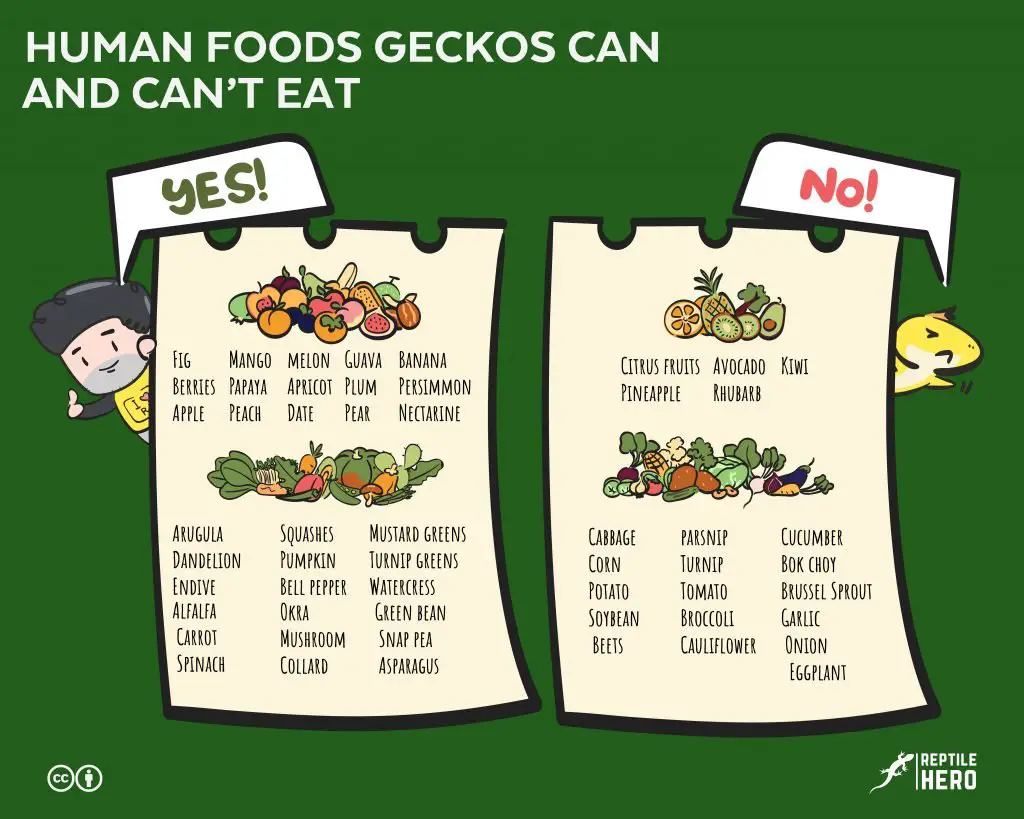
Fruits
As I have said, there are gecko species that eat plenty of fruits as part of their natural diets. I mean, look at these adorable little day geckos partying on some papaya and dragon fruit:
Fruits containing vitamin A are key in the proper functioning of reptile immune and reproductive systems among other things. The calcium and phosphorus naturally found in fruits are also good for healthy and strong bones.
The ratio of calcium to phosphorus is crucial in determining good fruits for your gecko because too much calcium causes metabolic dysfunction and too much phosphorus causes metabolic bone disease. Most experts agree that a good calcium-phosphorus ratio is 2:1.
But that ratio isn’t the only thing gecko owners should look into. Unfortunately, most of the fruits we see in markets today aren’t as healthy and packed with nutrients as they originally were. Nowadays, commercially grown fruits contain much fewer amounts of protein, vitamins, minerals, and fiber, but are much higher in sugar content. So if available, fresh native and organic fruits in season are better options.
Mixing a few fruits rich in different nutrients into smoothies for your gecko could make up for the nutrient deficiencies of single fruits. Variety is always good when it comes to creating a balanced gecko diet. Do make sure to properly wash and remove the seeds of all the fruits you will be giving your gecko. Chopping, grating, shredding, mashing, or blending them up could help with better digestion, especially for baby geckos.
Nonetheless, some fruits are simply unsafe for crested gecko consumption. Fruits you should never give your geckos include fruits high in citric acid, which could cause stomach irritation, vomiting, and diarrhea, high in oxalic acid which binds bind calcium and forms kidney stones [5], and those containing persin which is potentially toxic for small animals.
The fruit save to eat for crested gecko are:
- Fig
- Berries
- Apple
- Mango
- Papaya
- Peach
- Nectarine
- Apricot
- Date
- Guava
- Plum
- Pear
- Banana
- Persimmon
- Melons
Below the list of fruit not safe for crested gecko consumption:
- Citrus fruits
- Pineapple
- Kiwi
- Avocado
- Rhubarb
Vegetables
Similar to fruits, vegetables are also good sources of numerous vitamins, minerals, and other important nutrients [9] such as vitamin A, vitamin E, calcium, phosphorus, potassium, iron, protein, and many more.
However, just like some fruits, some vegetables also have insufficient calcium to phosphorus ratios, nutrient deficiencies, and contain oxalic acid. When offered raw, they could also contain high amounts of goitrogens, a substance that could cause iodine deficiency and ultimately result in hypothyroidism.
Tannins are also frequently found in plants and can cause issues with digestion if offered as the sole food source. Basically, too much of anything is never a good thing.
So although vegetables aren’t necessarily unsafe for geckos to eat, some are just better to avoid because they lack nutrients.
The vegetable that crested geckos can eat are:
- Arugula
- Dandelion greens
- Endive
- Alfalfa
- Prickly pear leaf
- Carrot
- Squashes
- Pumpkin
- Bell pepper
- Okra
- Mushroom
- Collard greens
- Mustard greens
- Turnip greens
- Watercress
- Green bean
- Snap pea
- Asparagus
- Spinach
Here the full list of vegetable not safe for crested gecko consumption:
- Cabbage
- Corn
- Potato
- Soybean
- Beets
- Parsnip
- Turnip
- Tomato
- Broccoli
- Cauliflower
- Cucumber
- Bok choy
- Brussel Sprout
- Garlic
- Onion
- Eggplant
Again, a varied diet is vital because feeding your gecko only a single kind of vegetable – or any other food item for that matter – in large amounts will increase their chances of developing severe conditions.
Remember to also properly wash, peel, deseed, and cut up the vegetables you will be including in your crested gecko’s smoothie.
Meats
Although big carnivorous reptiles are more than capable of eating and digesting whole prey – bones and fur included – without much chewing, the same can’t be said for their smaller and more delicate relatives, the geckos.
Plus, reptiles as a whole take a lot longer in digesting their food compared to other animals like mammals. They also don’t really chew on their food, a behavior that normally facilitates better digestion. Some would instead intentionally consume stones and pebbles to mash up the food they have just eaten, a process referred to as lithophagy.
For geckos living in the wild, this is not only done for small animal prey (like smaller geckos and rodent pups) and insects with hard exoskeletons, but also for fruits and other plant materials. So I would only advise pet parents to give their geckos meat on rare occasions – when your gecko is sick and needs to maintain a healthy weight or about to go into breeding.
In general, feeding leopard and crested geckos with meat should be avoided.
Many are vehemently against feeding captive geckos pinkies, but as long as they are small enough, it’s okay on rare occasions. Look for ones that are really small like this:
To repeat, wild geckos do hunt for and feed on meat. Meats are high in protein content but also in fat and sodium. For this reason, even if you are to give your gecko some more protein but don’t want to deal with pinkies, give them small amounts of meat with no oil, butter, spice, or any other additional flavor enhancers whatsoever.
Giving leopard and crested geckos highly-processed meats is not something I would recommend. I wouldn’t recommend fish either; mainly because they have thiaminase which has been reported to cause different debilitating vitamin deficiencies in other herps [13]. You also shouldn’t give them raw meat because it likely has bacteria, like salmonella, and other parasites [19]. Heck, even the pet parents of carnivorous and omnivorous fur babies wouldn’t do that.
Meats safe for leopard and crested geckos (but only in small quantities):
- Turkey
- Chicken
- Beef
- Deli meats free of salt, spices, and seasonings
Meats not safe for leopard and crested geckos:
- Raw meat
- Processed meats
- Fish
If you are planning to give your gecko meat for additional protein, make sure to wash and cook it before serving to get rid of harmful bacteria, like salmonella, and other parasites. Cutting them up into little bits or pureeing them into smoothie mixes could make them more palatable for geckos. You could also opt for the organic plain meat baby food shown below that is readily available and is most recommended by vets.
Eggs
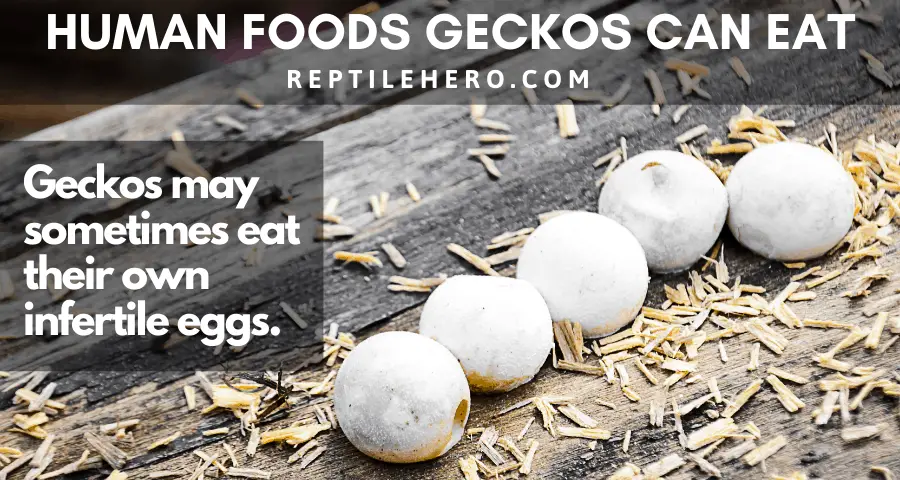
After years of keeping geckos, hearing from other hobbyists, and reading from reputable sites, it’s quite clear to me that lack of calcium in the diet of geckos in captivity is the reason why the metabolic bone disorder is so commonplace.
Deprivation of calcium could also explain why geckos have been observed to eat their own eggs albeit usually infertile. Interestingly, there have also been sightings of wild geckos living in urban spaces eating fried and scrambled eggs [6] perhaps for the same reason.
Moreover, an egg is one of the very few food items known to have complete protein – meaning they have the 9 essential amino acids. It also has vitamins A, D3, E, and B12, as well as other nutrients such as iron, folate, and lutein. As a matter of fact, whole dried eggs are used in the formulation of some Pangea diets and other Repashy Superfoods as shown below.
However, because they aren’t part of the normal wild gecko diet and are also high in fat, I would still advise against giving your geckos chicken eggs regularly. In the event that you do, prepare them the same way you would prepare meat – cleaned, cooked, and unseasoned. Don’t add anything, aside from some calcium powder like you would when dusting or gut-loading feeder insects.
Keepers have tried different ways to offer eggs to geckos. Some have offered plain scrambled, fried (without oil), and boiled eggs. Others added some honey. But both ways seem to be a bit unpopular. Then, a few gecko enthusiasts tried mixing it with some meal replacement powder diets. Guess what, geckos seem to love it best like that.
Raw bird’s eggs (from chickens, etc.) and fish roe should never be fed to leopard and crested geckos because of their bacteria content that can seriously affect the animal’s digestive tract.
Stick to unseasoned cooked poultry eggs – chicken, duck, quail. I’d say the best cooking method would be boiling but you can also prepare them sunny-side-up or scrambled without the oil.
Sweets
Certain gecko species, mostly those living in tropical islands, have developed quite a sweet tooth. Numerous frugivorous omnivore geckos in the wild have been documented feasting on not just sweet and fleshy fruits but also nectar and pollen from plants and flowers [7].
In fact, young day geckos would climb onto plants to feed on 10 flowers – at the very least – in just 6 minutes [8]. These vibrant little creatures do this daily, making them a big part of the natural pollen and seed dispersal process in their native habitats.
However, it’s important to keep in mind that while sweets like raw honey and nectar are healthy in some ways as they contain plenty of nutrients, they are still quite high in sugar content. So even if it’s okay to give crested geckos natural sweets, I would suggest you do so only occasionally (if any at all) and in just a few drops.
Just like this:
Feeding crested geckos with such sugary food must avoid as could actually even lead to the development of hyperglycemia and diabetes [9]. A better alternative for geckos as a sweet treat is fresh coconut water.
It’s good for keeping them hydrated while giving them something for their sweet tooth. It’s also much lower in sugar content but rich in good nutrients [10]. But since it also has vitamin C, don’t offer it often.
If you don’t have any fresh coconut water available in your area, you could instead mix 1 to 2 drops of honey with 1/4 cup of water, to make a bit of honeyed water. You can let the mixture drip onto the leaves in your gecko’s enclosure if they prefer drinking that way or you could also just have it in their normal water dishes. Some arboreal species seem to prefer drinking from cups suspended (here on Amazon) so you could try that out too.
Stay away from processed honey and sugars. Unlike their fresh, natural, and raw counterparts, they usually have added sugars and sweeteners and are stripped of good nutrients [11]. So while some wild geckos living near areas highly populated by humans have even been documented to regularly feed on honey and artificial sugars they could find inside houses [6], I wouldn’t make a habit of it.
Nuts
The final kind of food I will be talking about in this article is nuts. People would sometimes group nuts with meats because of their protein content, others with vegetables because some nuts are basically legumes, or and some with fruits as nuts are either considered as whole fruits or seeds of fruits.
Nuts are usually quite hard and dense even for us humans, so imagine your gecko trying to chomp on them. That wouldn’t paint a good picture, right? Especially since they have itty-bitty little teeth. Maybe this is why we never hear experienced breeders and reptile veterinarians telling keepers to feed their geckos nuts.
Remember what I said earlier, geckos like most other reptiles don’t really chew on their food. So even if you can get your gecko to swallow one, they might just choke on it or experience a really painful – and probably deadly – impaction.
Despite having plenty of protein, leopard and crested geckos should never be fed with nuts due to their harmful chemical components such as fat, oxalic acid, and goitrogen.
So don’t go sharing your trail mix with your delicate reptile companion.
Final Verdict on Feeding Geckos Human Food
Long story short: I’d say it’s always best to give them food that would match their natural diets.
Leopard geckos and other insectivores should be fed a variety of feeder insects that have been properly gut-loaded and dusted. Crested geckos and other frugivorous omnivores should also be fed in addition to different kinds of fruits, vegetables, and some sweets. Neither have ever been seen feeding on nuts in the wild, so don’t give it to them in captivity.
Though some owners have shared experiences of successfully feeding their leopard geckos fruits and vegetables despite being known to be primarily insectivores, I doubt those geckos would prefer such unusual foods (natural-diet-wise) over their favorite live feeders. They might think doing so is harmless but there is no proof of it being beneficial or even good [12]. So I think it’s best to stay on the side of caution and offer those fruits and vegetables to their feeders for gut-loading.
It would be okay to offer some meats, eggs, and/or sweets for growing and gravid geckos, for emergency rations when you run out of insects and other nutritionally balanced commercial diets, or for when you have a sick gecko that doesn’t have much appetite to maintain or meet a healthy weight. However, keep in mind that only frugivores like cresties have sweets as part of their natural diets.
| Type of Human Food | Gecko Feeding Frequency (max) | How to Offer | Good for Which Diet |
|---|---|---|---|
| Fruits | Regularly/ 4-5 days a week | Cut up into pea-sized bits, mixed into commercially available diets, or added into home-made smoothies | Frugivorous Omnivores |
| Vegetables | Occasionally/ 3 days a week | Mixed into commercially available diets or added into home-made smoothies | Frugivorous Omnivores |
| Meats | Rarely/ Times of emergency | Cut up into pea-sized bits, mixed into commercially available diets, or added into home-made smoothies | Insectivores & Frugivorous Omnivores |
| Eggs | Rarely/ Times of emergency | Cut up into pea-sized bits, mixed into commercially available diets, or added into home-made smoothies | Insectivores & Frugivorous Omnivores |
| Sweets | Occasionally/ 1-2 days a week | Diluted in water, mixed into commercially available diets, or added into home-made smoothies | Frugivorous Omnivores |
But to reiterate, not one of these food items should ever be solely given to geckos because doing so would just put them at complete risk of contracting numerous diseases caused mainly by imbalanced and deficient diets. As I said, nothing is ever good when taken in copious amounts and that is true even for nutrients.
Also, don’t forget to give them water. They could last weeks – even months – without food but only about 3 days without water.
Desperate Times Call for Desperate Food Choices
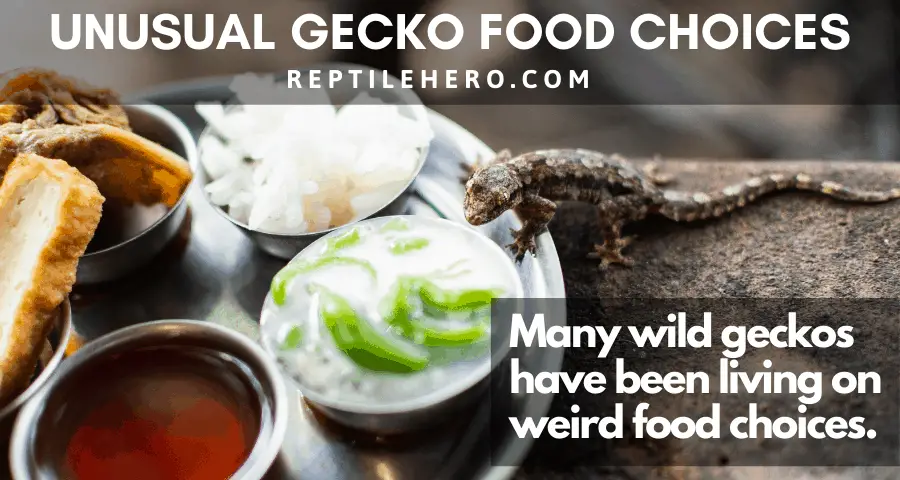
Unlike dogs, cats, and many other animals that have been kept in captivity for tens of thousands of years already [13], much about keeping reptiles as pets is still uncertain. This is particularly true when it comes to their diets, seeing as people only started keeping exotic animals, including geckos, as pets during the 1900s [14].
Truth be told, numerous experienced scientists [6, 15, 16] and regular hobbyists have observed peculiar feeding in geckos.
Wild geckos – both insectivores and frugivores – have been seen feasting on rice, egg, fruits, vegetables, plants, bread, cookies, crackers, garlic sauce, chocolate cake cream, and even an alcoholic tropical beverage. Other omnivorous geckos have even been documented to eat small snails in their entirety. What’s interesting is only females of certain species seem to engage in mollusc ivory.
Although no one knows for sure if such food choices are okay or even safe for geckos, I personally wouldn’t actively give my gecko any human food that wouldn’t match her normal diet. Moreover, experts think that such bizarre diets could easily be chalked up to the lack of insects making it a matter of survival and not preference. Some geckos might have even mistaken grains of cooked rice for small worms.
Takeaways
- Insectivorous pet geckos can be fed cooked but unseasoned meats and eggs if they are sick, skinny, growing, or gravid, or if you have run out of their normal live feeder insects and other commercial diets during times of emergency.
- Frugivorous-omnivorous pet geckos can also be fed meats and eggs on rare occasions, as well as fruits, vegetables, and some sweets occasionally or regularly as these are part of their normal diets even in the wild.
- The 2 main factors you should consider when giving pet geckos human food are their natural diets under normal circumstances and the nutritional value of the food items you are planning to give them.
- Numerous reports of opportunistic eating in wild geckos living in and near human settlements detail unconventional food items as part of their diets. Whether it can be considered relatively safe or normal is still unclear.
Sources
- https://www.merckvetmanual.com/management-and-nutrition/nutrition-exotic-and-zoo-animals/nutrition-in-lizards
- https://www.reptiles.org.nz/keeping/husbandry
- https://www.merckvetmanual.com/management-and-nutrition/nutrition-exotic-and-zoo-animals/nutrition-in-reptiles
- https://kidneystones.uchicago.edu/kidney-stone-types/
- https://www.researchgate.net/publication/314938916_Observations_of_an_opportunistic_feeding_strategy_in_flat-tailed_house_geckos_Hemidactylus_platyurus_living_in_buildings/link/58c75503458515478dc218f3/download
- https://www.encyclopedia.com/environment/encyclopedias-almanacs-transcripts-and-maps/geckos-and-pygopods-gekkonidae
- https://www.researchgate.net/publication/268980710_New_record_of_day_geckos_feeding_on_orchid_nectar_in_Reunion_Island_Can_lizards_pollinate_orchid_species
- https://www.vetexotic.theclinics.com/article/S1094-9194(02)00054-3/fulltext#:~:text=True%20diabetes%20mellitus%20has%20rarely,major%20influence%20on%20blood%20glucose
- https://www.healthline.com/nutrition/8-coconut-water-benefits#TOC_TITLE_HDR_2
- https://www.healthline.com/nutrition/raw-honey-vs-regular#TOC_TITLE_HDR_6
- https://peteducate.com/can-geckos-eat-fruit/
- https://en.wikipedia.org/wiki/List_of_domesticated_animals
- https://www.worldanimalprotection.us/news/brief-history-global-exotic-pet-trade
- https://www.thebhs.org/publications/the-herpetological-bulletin/issue-number-149-autumn-2019/1965-8-opportunistic-feeding-by-house-dwelling-geckos-does-this-make-them-more-successful-invaders/file
- http://www.caribbeanherpetology.org/pdfs/ch62.pdf

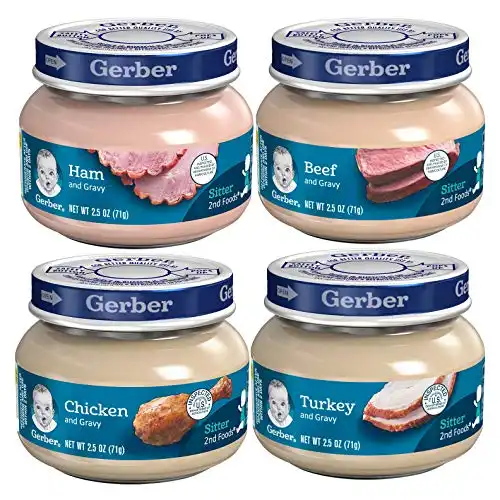
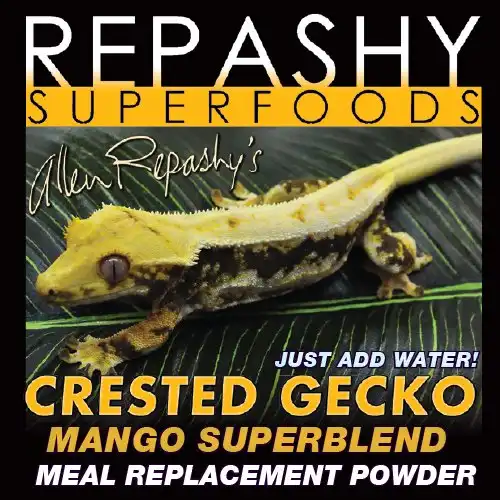
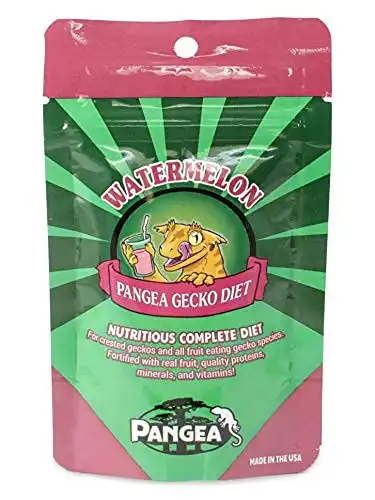
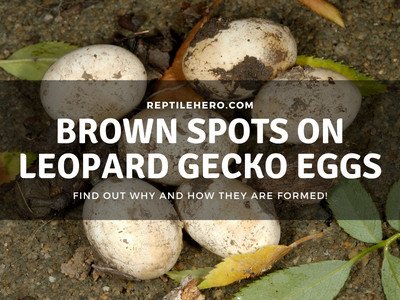

![Do Geckos Drink Milk? [Think it Twice]](https://www.reptilehero.com/wp-content/uploads/2021/07/Does-Gecko-Drink-Milk-Infographic-768x614.jpg)
![Why Do Leopard Geckos Poop in the Same Spot? [Wild Nature]](https://www.reptilehero.com/wp-content/uploads/2022/03/why-geckos-poop-in-one-spot-cc-1-768x614.jpg)
![Are Geckos Sensitive To Sound? [4 Reasons, 9 Signs, 7 Tips]](https://www.reptilehero.com/wp-content/uploads/2021/03/G41-768x614.jpg)
